Schoolgirl left mute and unable to walk after routine eye test
Amelie Williams was left ‘trapped’ after surgery
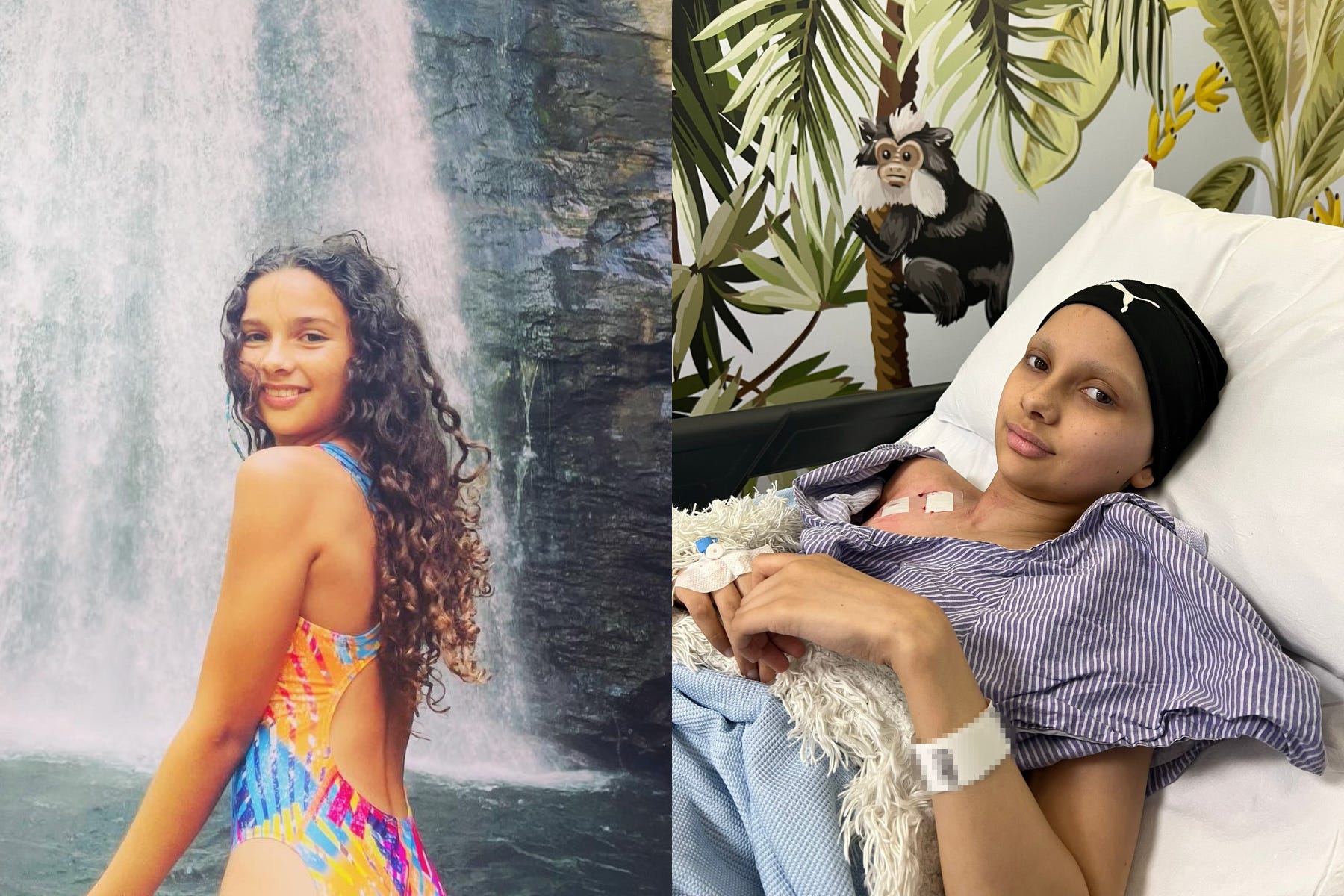
A schoolgirl who loved to sing and play sport was left mute and unable to walk after a cancerous brain tumour was found during a routine eye test.
Lydia Williams’ daughter Amelie, 12, who lives near Wells in Somerset, was diagnosed with medulloblastoma, aged 11, after she had an eye check-up in March 2023 and the optician noticed her eyes “flickering”.
The following day, she underwent a 10-hour operation to remove the apricot-sized brain tumour – but when she regained consciousness, she could not open her eyes for the first 24 hours, and she had lost the ability to walk and talk.
She was mute for three weeks, meaning she predominantly communicated through hand gestures and passed the time listening to the Tracy Beaker audiobook series, and when she did regain some of her speech it sounded “robotic”.
Amelie then faced six weeks of “horrific” radiotherapy, which caused her to lose her hair, followed by nine months of chemotherapy and rehabilitation sessions and physio to help her regain her movement and strength, as she spent around a year in a wheelchair in total.
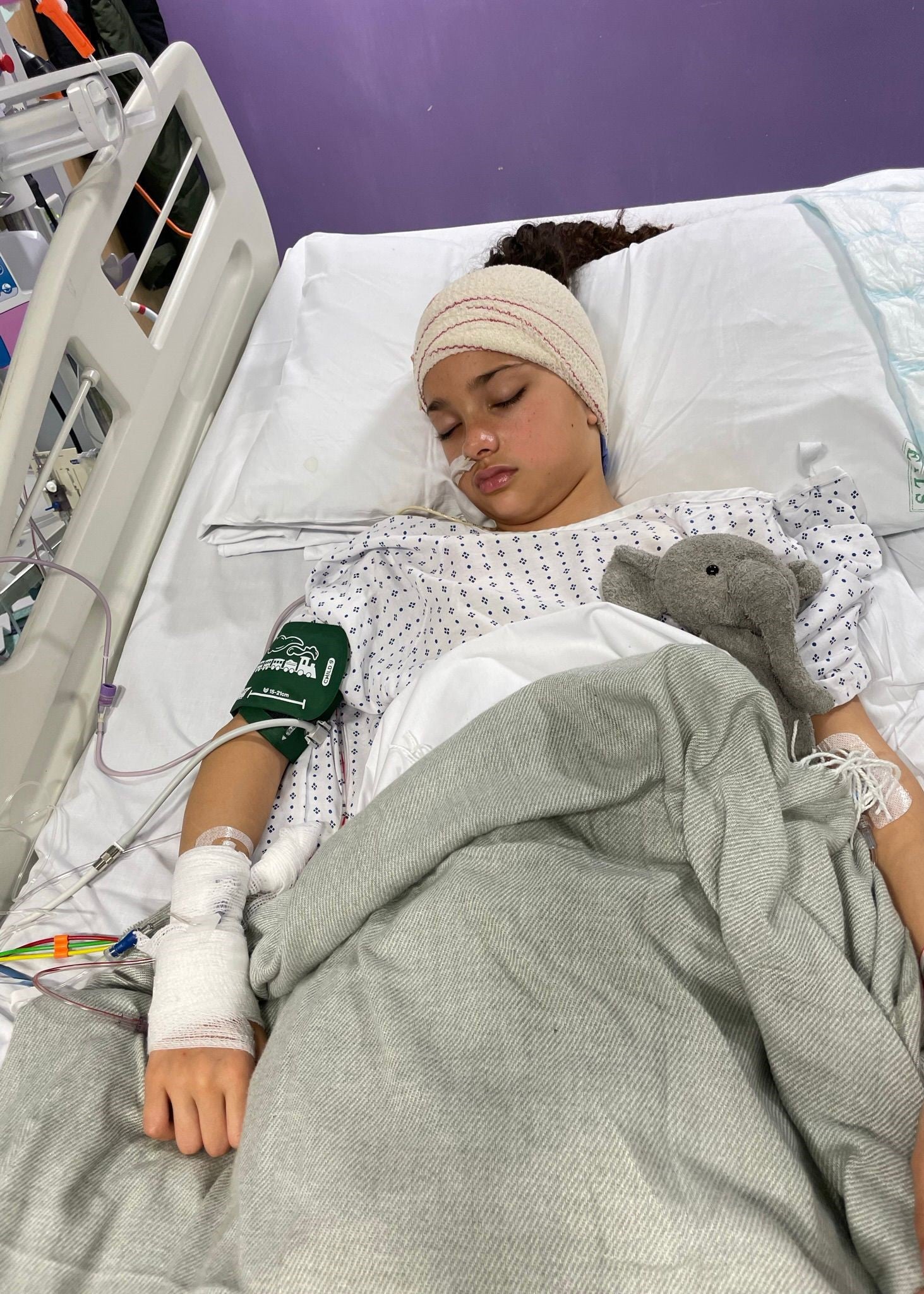
Since finishing her treatment, Amelie has started secondary school for the first time on a reduced timetable as she continues to recover – and with “hope” and determination, she is slowly re-learning her sporting, singing and beatboxing skills.
“(After my surgery) I couldn’t see anyone. I could sense they were there and I could hear them… but I couldn’t respond,” Amelie told PA Real Life.
“I felt like my body was a shell and I was trying to call out to my family, but my mouth wouldn’t move.
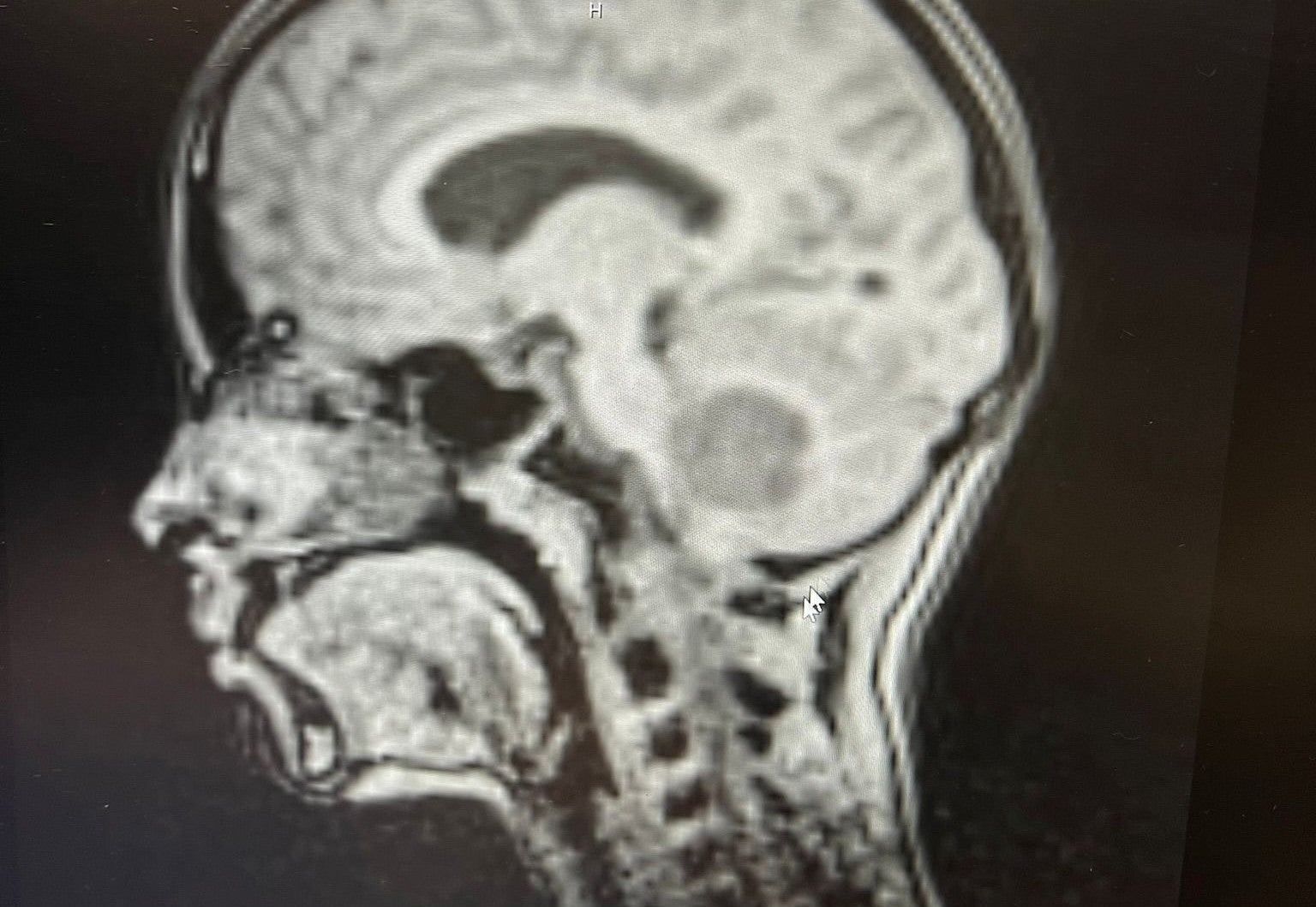
“When I lost my voice, it was really hard because normally I sing to express myself. If I feel sad, then I sing a song to myself.
“Now I’m going back to school and I’m doing the same clubs that I used to – going back to my gymnastics, going back to my swimming, and I’m just working on swimming techniques.”
Amelie is a “sporty” and “arty” person, and she used to sing and beatbox in her spare time prior to her diagnosis.
During her athletics training, she started to notice issues with her balance – but it was not until a routine annual check-up at the opticians on March 23 2023 that some unusual symptoms were detected.
Lydia, a 43-year-old teacher, said: “The optician said to me: ‘Just have a little look at this Mum, her eyes are doing something’.
“I had a look and they were tremoring, flickering, and I said: ‘What’s that?’ And he said: ‘I’m not sure, but I think you need to take her to the GP’.”
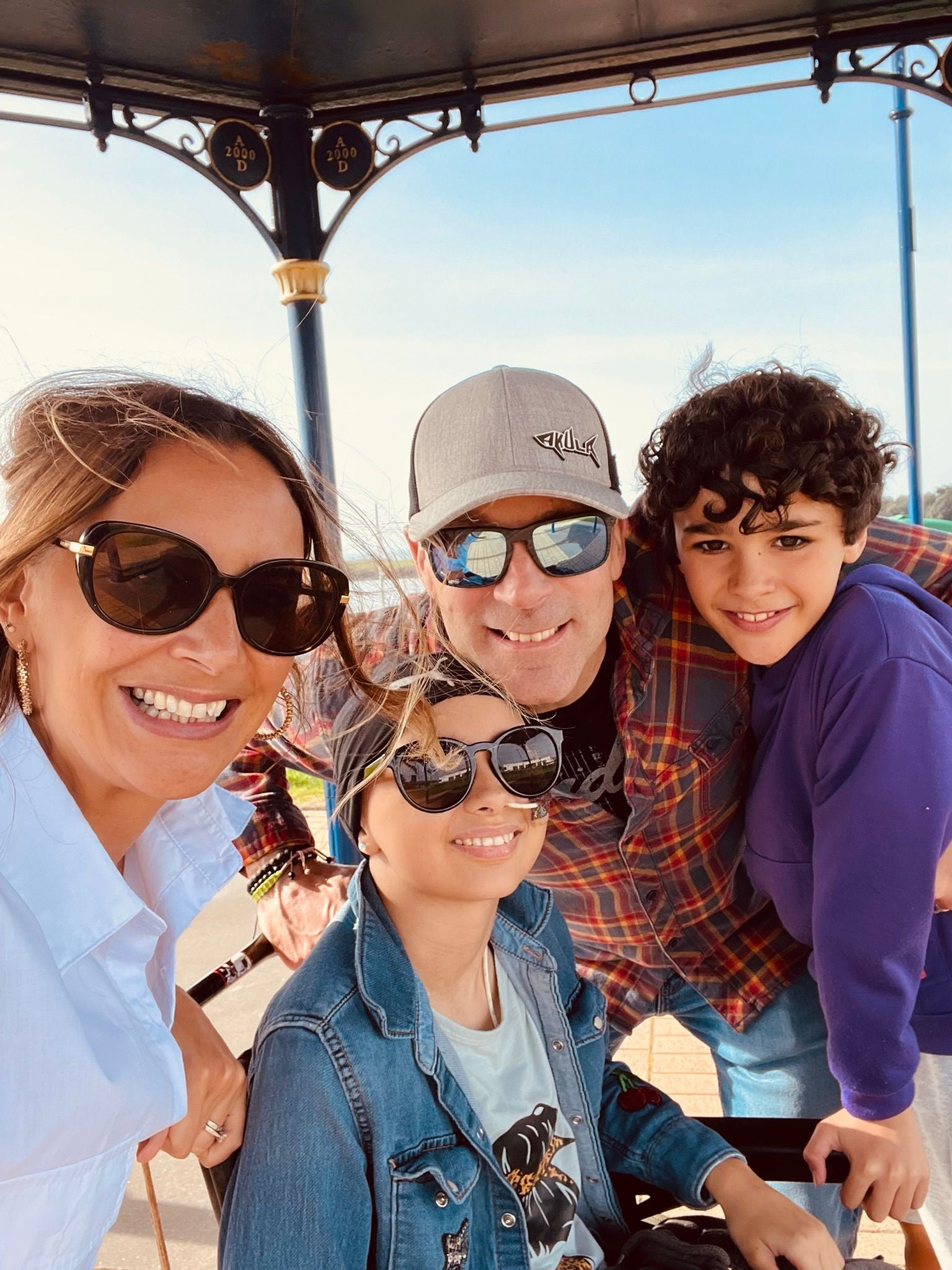
Amelie had a GP appointment later that day, which led to a referral to Royal United Hospital in Bath, where she underwent a series of blood tests and an MRI.
Once the scan was completed, doctors requested to speak with Lydia – and this is when she received the news that Amelie had a brain tumour, which was later confirmed as stage 4 medulloblastoma.
“I remember the doctor saying to me: ‘Is there anything you need to know? Is there anything you want to ask us?’ And I just said: ‘Is she going to die?’ And he said: ‘We don’t know’,” Lydia explained.
Lydia called her 50-year-old husband Chris, a yacht captain who was away at sea in Italy at the time, to inform him of the news, and Amelie was taken to Bristol Royal Infirmary via ambulance.
She underwent a successful 10-hour operation to remove the apricot-sized brain tumour the following day.
However, it was soon discovered the removal of the tumour “caused a shock in her cerebellum” – a vital component in the brain which plays a role in motor movement regulation and balance control.
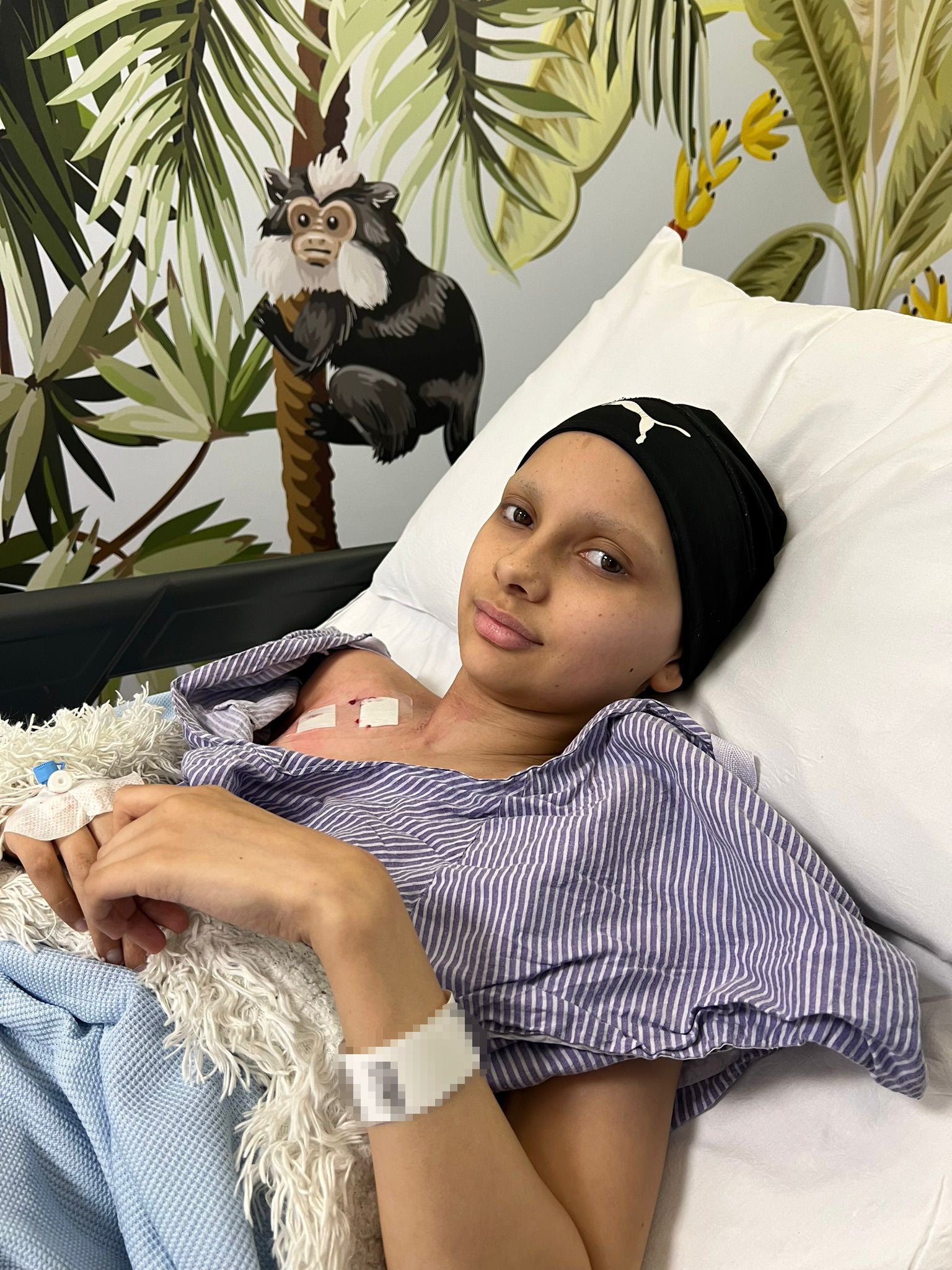
This meant that when Amelie regained consciousness after the surgery, she was experiencing posterior fossa syndrome (PFS) – a complication of surgery for medulloblastoma, which can cause problems with communication, motor skills and mood.
“She wasn’t able to talk, she wasn’t able to move, she didn’t open her eyes for the first 24 hours – she was breathing on her own, that was about it,” Lydia said.
“Ever since then, she has had to relearn how to do everything again.”
Amelie explained that she felt “trapped” initially after the surgery, and although she wanted to cry, she held back her tears as she wanted to stay positive.
It took three weeks for Amelie to make her first sound again, and after two months she was beginning to use words to communicate.
“I couldn’t talk properly like I am talking now, I was just like a robot talking, and my parents said: ‘You had a tumour and the doctors had to take it out, you had cancer’,” Amelie said.
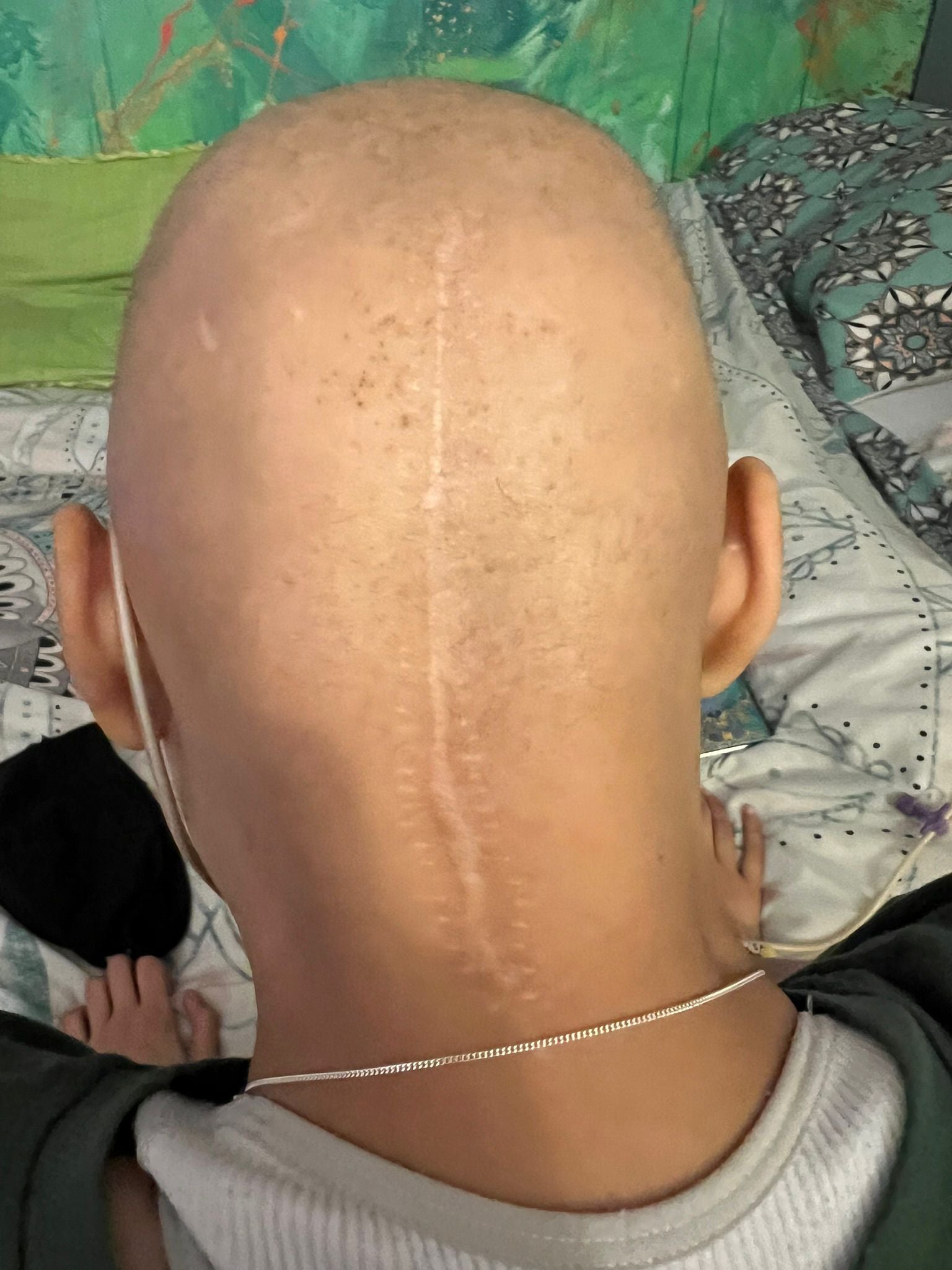
After a six-week break post-surgery, Amelie then faced six weeks of radiotherapy, which caused sickness and hair loss, followed by nine months of “relentless” chemotherapy.
Although the treatment felt like “a mountain to climb”, Amelie said her family, her friends, her dog Dottie and Young Lives vs Cancer’s digital support groups helped her through it, and she loved visiting the two ducklings that had hatched in the hospital school.
“It was agony for her, agony for me every day, and I would constantly say to her: ‘Well, we’re going to go and see the ducks in a minute’, just to try and get her through that,” Lydia said.
“We used to talk about when we could walk the dog again and when we could go and lay on the field in the sunshine and smell the fresh grass – all those things that you just miss when you’re in that artificial environment.”
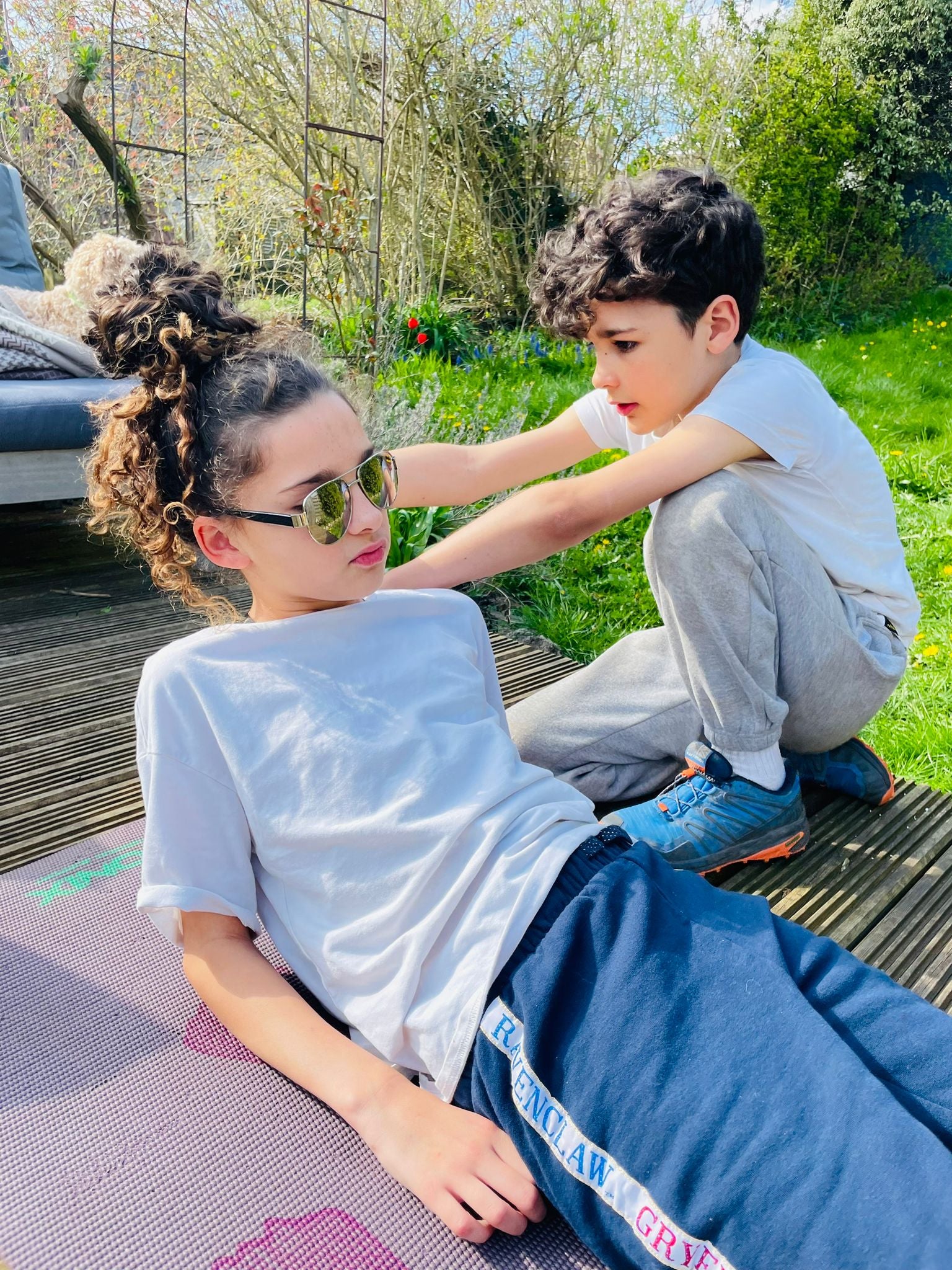
Gradually, with speech and language sessions and physio, Amelie started to regain her movement and her ability to talk – and her little brother Arlo, 10, even helped her with some exercises at home and took care of her.
Since finishing her treatment in March this year, Amelie has continued with her rehabilitation sessions and has started secondary school, she is participating in the local clubs she used to attend, and she has been teaching herself to sing and beatbox again.
Amelie said artwork has been essential to her recovery and she would strongly advise other children with cancer to talk to “somebody that’s going through a similar thing to you” and to hold on to “hope”.
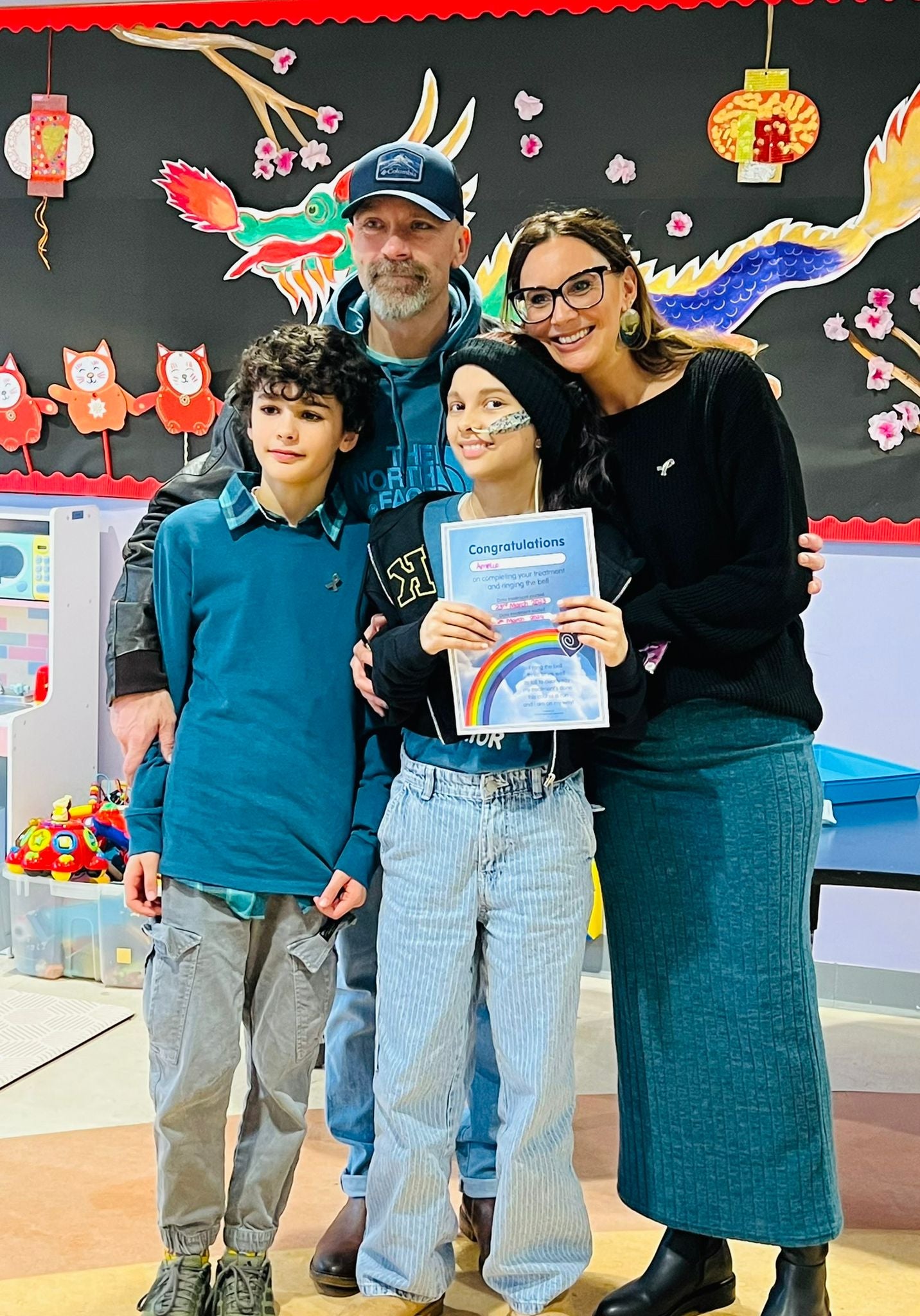
She said: “I was scared but I would always tell myself: ‘Hey, it’s all going to be okay. You’re going to get better and go out of the hospital and be able to do the stuff that you did before’.
“I’d like to shout out Caroline, Alban, Tia, Boheme, Aisha, and Lily, and a special thanks to my best friend Olive who has been by my side since the beginning.”
Lydia added: “I think cancer scares everybody, children and adults, and it carries with it a lot of negative connotations… but now, being a family that’s gone through something like that, I also feel that cancer isn’t the end.”
Amelie and her family were supported by the charity Young Lives vs Cancer. To find out more, visit: www.younglivesvscancer.org.uk.